The truth about Scott "The Extender" Foster
The nickname was accurate in Game 4, but not in the way you think
Just before midnight, I flicked on my lights and nestled into my chair. It was time to record the live KOC Show Game 4 Reaction pod on Yahoo Sports and talk about how OKC pulled away from Indiana to win.
Kevin O’Connor and I had to address the refs. It was probably the biggest (non-Solitaire division) talking point of the game. In the show, I said I felt that Scott Foster and his crew's officiating really made an impact on the game.
But not in the way that most were talking about.
Yes, Scott Foster was the crew chief, the guy who is known as The Extender for seemingly lining the NBA’s pockets by lengthening every playoff series he works. But I actually don’t think he was directly in the tank for OKC to extend the series (though the SGA late pushoff/travel on Aaron Nesmith right under Foster’s nose was really, really bad). One study showed that there is not much evidence at all of Foster’s ability to “extend” the series.
In Game 4, it wasn’t like Foster called way more fouls on Indiana than OKC. In fact, after reviewing the play-by-play, I found that Foster called more fouls on the THUNDER than on the Pacers.
But there’s another angle to Game 4 that deserved more attention:
The rest factor.
Remember how I started the KOC Show just before midnight? That was three hours after tipoff. If that felt late, that’s because it was. Much of the blame for your late bedtime can be placed on the refs.
Foster, along with Josh Tiven and Sean Wright, called 53 fouls in Game 4, a marked increase from the previous three games of the season. Which makes sense because …
Well, Scott Foster was working the game.
Foster LOVES to blow his whistle. Indeed, he called 23 fouls in Game 4, way more than his counterparts. According to extensive research by the brilliant Owen Phillips of the F5 Substack, Foster calls more fouls than anybody in the league, averaging 2.31 more fouls called per 100 possessions than the average official. Sean Wright, who also worked the game, ranks No. 2 on the list for foul volume.
That in of itself isn’t damning. If Foster is calling it down the middle, who cares?
Here’s the thing.
Fouls lead to free throws.
Free throws lead to recovery for weary legs.
One way to think about free throws is that they’re rest opportunities in disguise.
And, holy smokes did OKC take advantage of the extra R&R.
For a team that was gassed down the stretch in Game 3 and playing at Indiana with only one day off, the rest factor loomed large. In the final three minutes, OKC blitzed past the Pacers and finished the game on a 12-1 run.
I asked KOC in last night’s show if he could even recall who the crew chief was in Game 3. It was a rhetorical question (btw it was James Capers). Everyone knew Game 4 was a Scott Foster game because his face was on our screen more than any official in any sport should be.
There were so many reviews, stoppages and loose-ball fouls that from my vantage point it really seemed to help OKC catch their breath.
Also during last night’s KOC Show, I mentioned how it felt like Foster was calling a loose-ball foul whenever he could. Well the numbers are in. There were 6 loose-ball fouls called in this game, all in the second half. Turns out Foster called five of them.
This was a jarring shift in the series. There were twice as many loose-ball fouls called in Game 4 compared to the rest of the series COMBINED. Actually, there wasn’t a single loose-ball foul whistled in the entire Game 3 with Capers as the crew chief.
What’s interesting is that all of those loose-ball fouls were called on OKC but Pacers just did not capitalize on FTs (shot just 4/8). It was a missed opportunity for Indiana in the same way that the Thunder have forced so many turnovers in this series without converting the ensuing fast break.
The upshot is that in this Scott Foster game there was a lot more standing around and a lot more player batteries being charged. How much more standing around?
Over at inpredictable.com, we can see that Game 4 lasted 169 minutes, or two hours and 49 minutes. That’s absurd for a non-overtime game.
To put it in perspective, Game 1 only lasted 148 minutes, which means that with all the whistles/reviews/stoppages by Foster’s crew, there was an extra 21 minutes of down time (/rest) in Game 4 compared to Game 1.
21 minutes!
This is a historical anomaly, not just this series. What I found flipping through Inpredictable pages is that Friday’s Game 4 was the longest Finals game of the last four seasons — by far. It’s even crazier when you consider that the 2024 NBA Finals between Boston and Dallas averaged about 138 minutes.
So Foster’s game on Friday was roughly 30 minutes longer than your typical Finals game. (Another side story: the 2025 Finals are taking way longer than usual. Close games tend to have more timeouts and fouls, but still).
I really think all that extra rest benefited OKC, even if it wasn’t a conscious decision to bake in more rest. SGA and the Thunder were clearly gassed in Game 3, so much so that OKC coach Mark Daigneault made sure to sub out his MVP midway through the fourth quarter of a tight Finals game for a quick breather. It worked in the end.
Some might argue there were more legitimate fouls in Game 4 and Foster and his crew were simply calling them. But given his statistically-proven propensity for being quick with the whistle, I’m putting it more on Foster than it was the players.
Foster’s heavy whistle extended the game and now we’re knotted up at 2-2. One thing’s for sure, The Extender nickname just extended its shelf life.


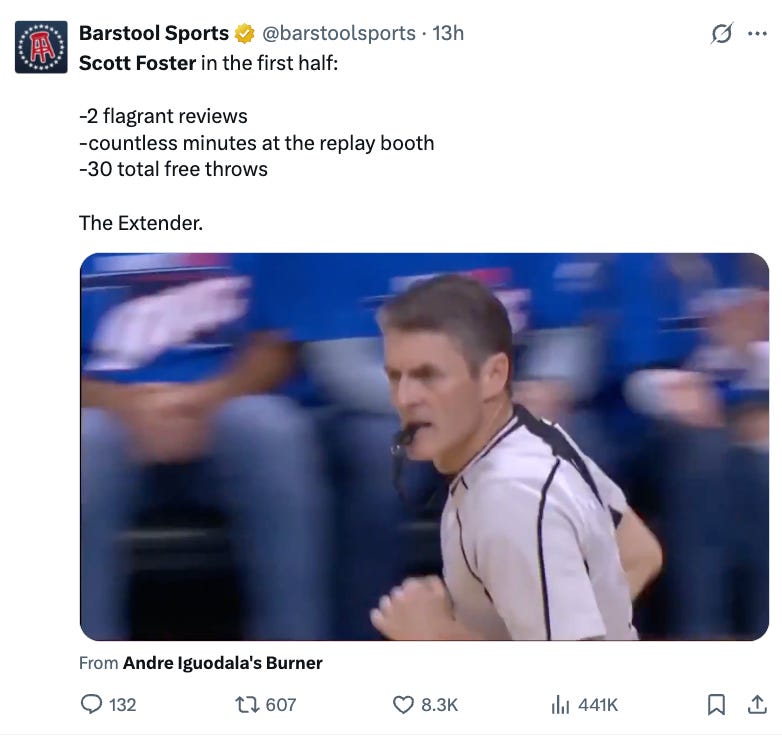
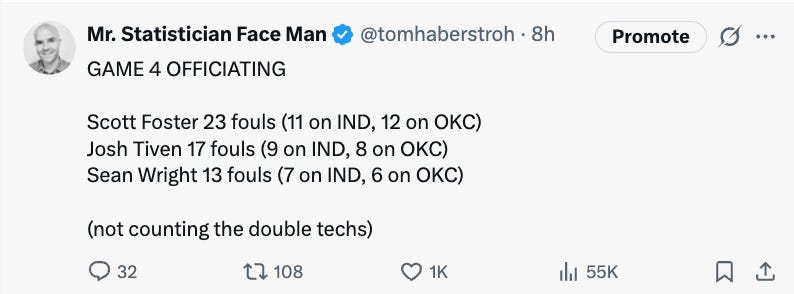

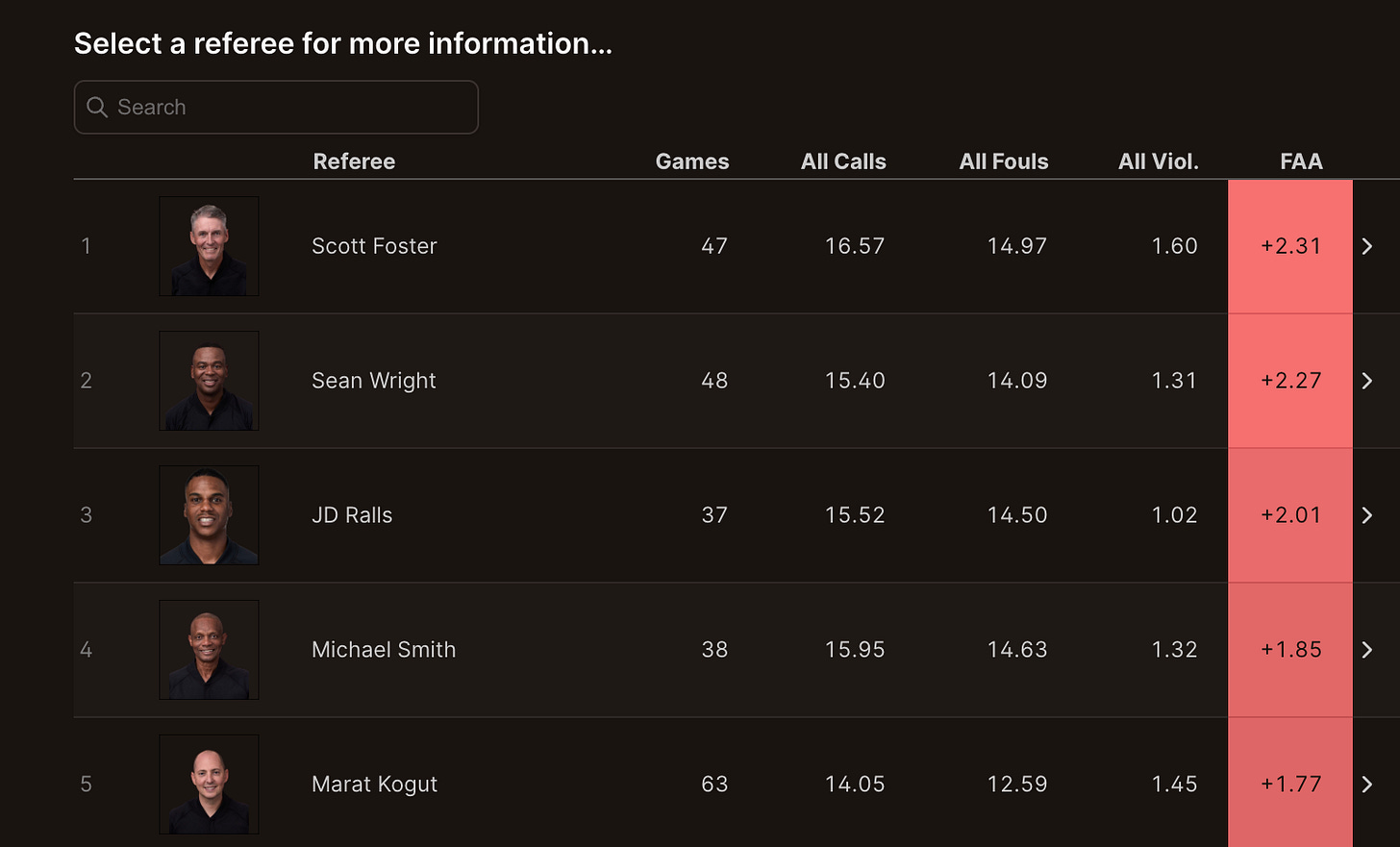
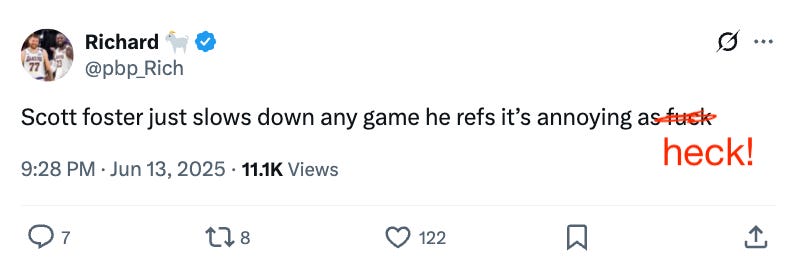


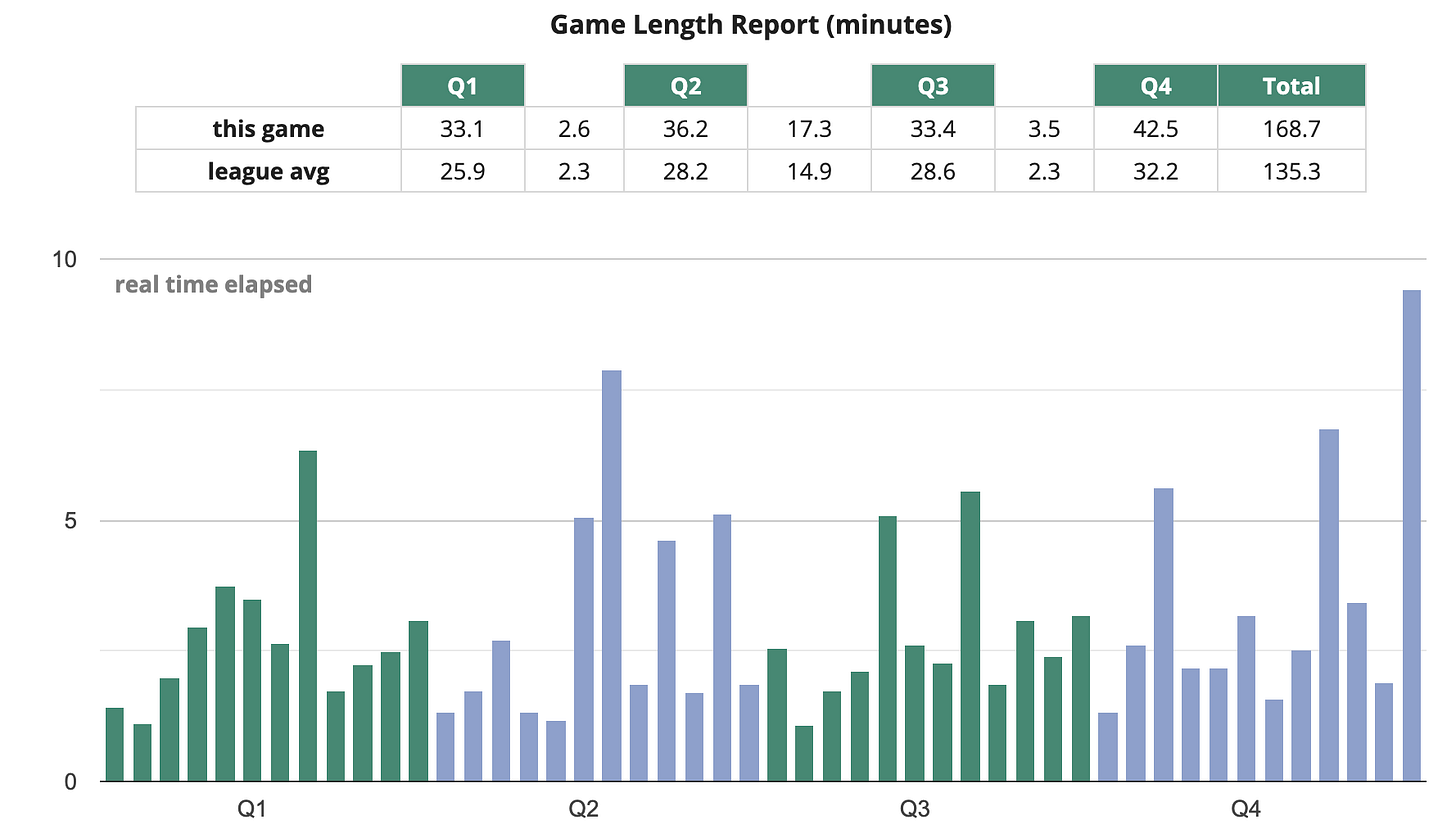
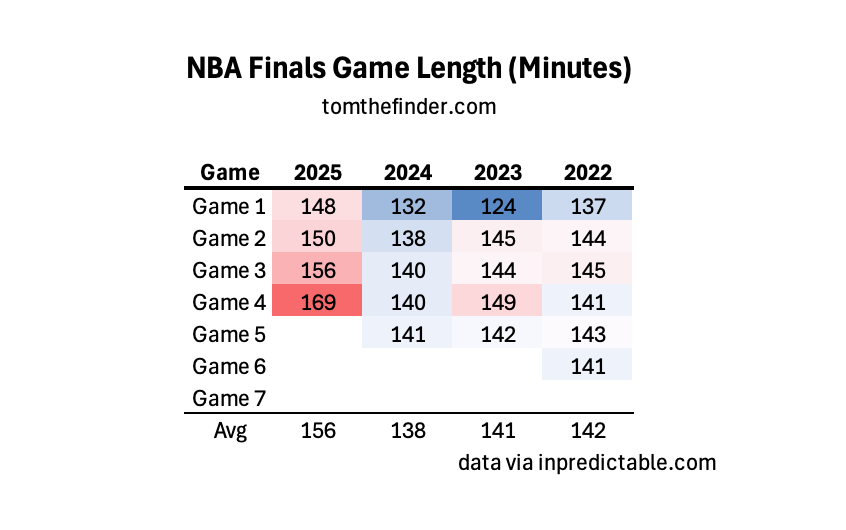
I have no way of knowing whether or not Scott Foster had nefarious motives (though with his history, one is at least entitled to consider the possibility), but at the very least, it should be obvious that creating a parade to the free throw line makes for bad basketball. One must wonder, therefore, why he continues to get these prime assignments.